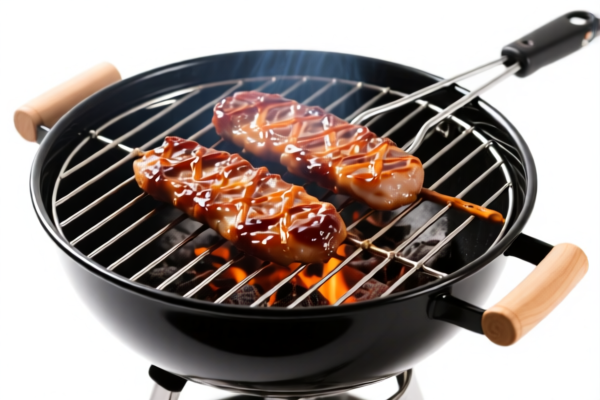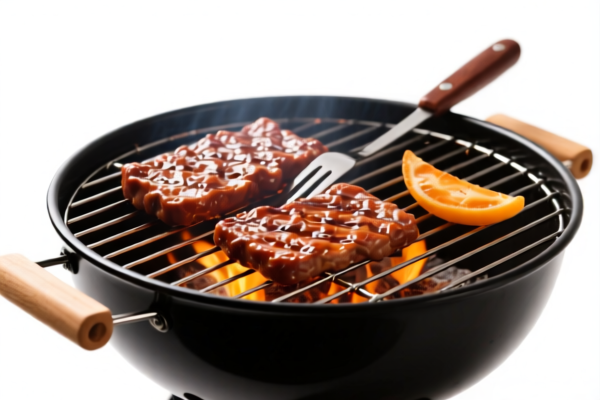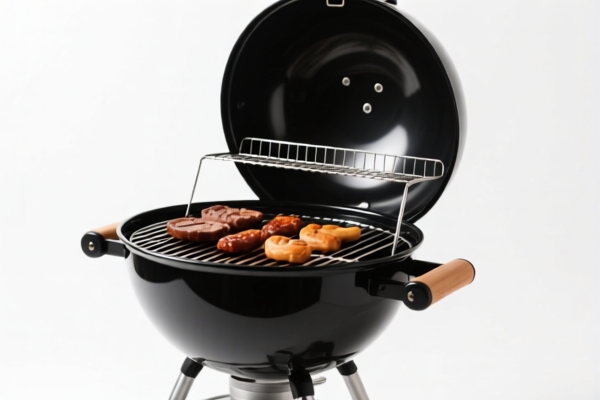| HS Code | Official Doc | Tariff Rate | Origin | Destination | Effective Date |
|---|---|---|---|---|---|
| 6815910011 | Doc | 55.0% | CN | US | 2025-05-12 |
| 6815910071 | Doc | 55.0% | CN | US | 2025-05-12 |
| 5601300000 | Doc | 55.0% | CN | US | 2025-05-12 |
| 5609004000 | Doc | 58.9% | CN | US | 2025-05-12 |
| 5609004000 | Doc | 58.9% | CN | US | 2025-05-12 |
| 8424899000 | Doc | 56.8% | CN | US | 2025-05-12 |
| 8424909080 | Doc | 80.0% | CN | US | 2025-05-12 |
| 6901000000 | Doc | 55.0% | CN | US | 2025-05-12 |
| 6914108000 | Doc | 64.0% | CN | US | 2025-05-12 |
| 6914908000 | Doc | 60.6% | CN | US | 2025-05-12 |
| 3825900100 | Doc | 55.0% | CN | US | 2025-05-12 |
| 3825690000 | Doc | 55.0% | CN | US | 2025-05-12 |




Barbecue Cleaning Bricks
Barbecue cleaning bricks, also known as grill cleaning bricks, are abrasive blocks utilized for removing burnt-on residue from grill grates. They offer an alternative to wire brushes and chemical cleaners.
Material
Typically composed of recycled glass, often sourced from post-consumer bottles. The glass is processed into a porous block structure, creating a rough surface for scrubbing. Some variations may incorporate other abrasive materials.
Purpose
The primary purpose is to efficiently remove grease, charred food particles, and rust from grill grates, restoring them to a clean cooking surface. They aim to provide a safer and more environmentally friendly cleaning method compared to traditional approaches.
Function
Cleaning bricks function through mechanical abrasion. The rough surface of the brick physically breaks down and lifts debris from the grill grate when rubbed across it. The porous structure traps some of the loosened residue.
Usage Scenarios
- Routine Grill Maintenance: Used regularly after each grilling session to prevent heavy buildup.
- Deep Cleaning: Employed for more thorough cleaning when significant residue has accumulated.
- Restoring Older Grates: Can assist in removing rust and revitalizing neglected grill grates.
- Various Grill Types: Suitable for porcelain-coated, stainless steel, and cast iron grates (though caution is advised for cast iron – see 'Cautions' below).
Common Types
- Standard Cleaning Bricks: Rectangular blocks, typically 4-6 inches in length.
- Shaped Cleaning Bricks: Designed with contours to better fit curved grates.
- Handle-Attached Bricks: Feature an integrated handle for improved grip and control.
- Combination Tools: Some products combine a cleaning brick with a scraper or other cleaning implements.
Advantages
- Safe: Eliminates the risk of wire bristles breaking off and ending up in food.
- Environmentally Friendly: Often made from recycled materials.
- Effective: Can effectively remove stubborn residue.
- Durable: Long-lasting with proper use.
- Non-Toxic: Does not involve the use of harsh chemicals.
Cautions
- Cast Iron Grates: Use with caution on cast iron, as excessive scrubbing can remove seasoning. Light pressure is recommended.
- Porcelain-Coated Grates: While generally safe, avoid applying excessive force to prevent damage to the coating.
- Wet Grates: Best used on warm or cool grates. Using on extremely hot grates may cause the brick to crumble.
- Proper Disposal: Dispose of worn bricks responsibly.
- Eye Protection: Wearing eye protection is recommended to prevent debris from entering the eyes.
Barbecue cleaning bricks fall under the category of ceramic goods used for cleaning purposes. Based on the provided information, the following HS codes are relevant:
-
6901000000: Bricks, blocks, tiles and other ceramic goods of siliceous fossil meals (for example, kieselguhr, tripolite or diatomite) or of similar siliceous earths. This code covers ceramic goods made from materials like kieselguhr, tripolite, or diatomite, which could be used in the manufacturing of cleaning bricks.
- 69: Ceramic products.
- 01: Bricks, blocks, tiles and other ceramic goods.
- 000000: Specifically refers to goods made of siliceous fossil meals or similar siliceous earths.
-
6914108000: Other ceramic articles: Of porcelain or china: Other. If the cleaning bricks are made of porcelain or china, this code applies.
- 69: Ceramic products.
- 14: Other ceramic articles.
- 108000: Specifically refers to porcelain or china articles, categorized as "Other".
-
6914908000: Other ceramic articles: Other: Other. If the cleaning bricks are made of other ceramic materials not specifically covered by other codes, this code applies.
- 69: Ceramic products.
- 14: Other ceramic articles.
- 908000: Specifically refers to other ceramic articles, categorized as "Other".
Regarding HS code 6901000000, 6914108000, and 6914908000, please note that the applicable tariff is a basic tariff of 0.0%, an additional tariff of 25.0%, and an additional tariff of 30.0% after April 2, 2025, resulting in a total tariff of 55.0% or 64.0% depending on the specific code.
Customer Reviews
No reviews yet.